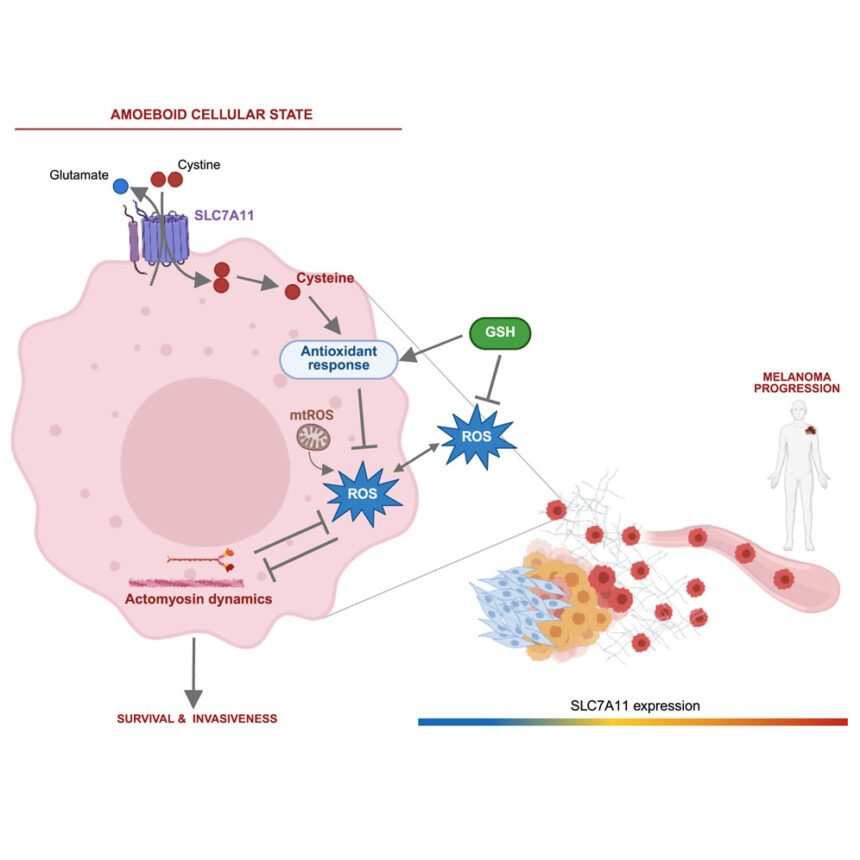LONDON — A team of cancer researchers has uncovered how a specific protein helps particularly aggressive cancer cells survive and spread — and how turning off that protein might offer a new strategy to stop deadly metastasis.
In a new study published in Cell Reports, scientists led by Dr. Victoria Sanz-Moreno and Dr. Eva Crosas-Molist from The Institute of Cancer Research (ICR) in London have found that a protein called SLC7A11 plays a crucial role in helping fast-moving, shape-shifting cancer cells thrive by shielding them from oxidative stress — a damaging process caused by unstable molecules in the body.
What Are Amoeboid Cancer Cells?
Some cancer cells change their shape and behavior to become what scientists call amoeboid — they move quickly and individually through tissues, squeezing between cells like an amoeba. These amoeboid cells are often seen in late-stage cancers and are especially good at spreading (a process known as metastasis).
“Amoeboid cells are like stealthy invaders,” said Dr. Sanz-Moreno. “They move fast, resist harsh conditions, and are hard to eliminate with traditional treatments.”
The Role of SLC7A11
While these cells avoid the usual energy-heavy routes that other cancer cells rely on, they still face a big challenge: oxidative stress, which can damage or kill cells. The new study shows that SLC7A11, a protein known for transporting certain amino acids, helps amoeboid cancer cells survive oxidative stress and invade new tissues.
By analyzing lab-grown cancer cells, tissue samples from patients, and data from cancer databases, the researchers found that SLC7A11 levels were especially high in amoeboid cancer cells at the edges of tumors and in metastatic sites.
Not only did this protein reduce oxidative stress, but it also helped maintain high activity in another system — ROCK-Myosin II — which controls how cells move and change shape.
A New Treatment Target?
Importantly, when researchers blocked SLC7A11, the amoeboid cancer cells became more vulnerable. They moved less, survived less, and showed signs of damage from oxidative stress.
“Our findings suggest that SLC7A11 is a weakness we can exploit,” said Dr. Crosas-Molist. “If we target this protein, we might be able to stop these dangerous cells from spreading.”
Why It Matters
Metastasis is responsible for the vast majority of cancer-related deaths. This study sheds light on one of the key tricks cancer cells use to spread — and provides a potential path to stop them.
While more research is needed before any new treatments reach patients, the study adds an important piece to the puzzle of how cancer evolves and escapes control.
Reference
Graziani, V., Barcelo, J., Tripp, A., Poulogiannis, G., Crosas-Molist, E., Sanz-Moreno, V., et al. (2025). SLC7A11 protects amoeboid-disseminating cancer cells from oxidative stress. Cell Reports.









